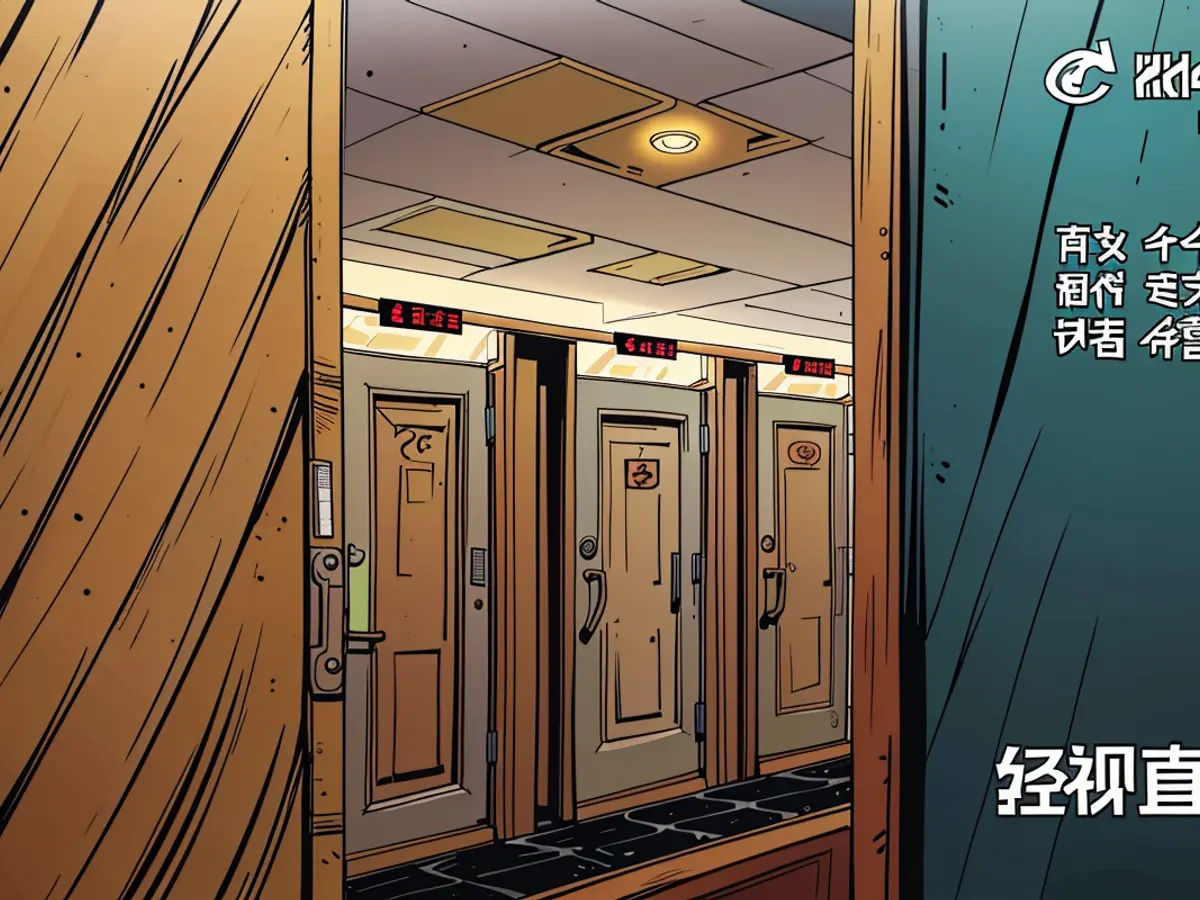For how long have you been in there? A frequented tourist spot in China has introduced restroom timers. Responses vary.
In recent times, the toilets in the UNESCO-listed World Heritage site of Yungang Buddhist Grottoes have been drawing more attention than the splendorous views the place boasts of.
A video that recently circulated on Chinese news and social media platforms reveals a high-tech solution to accommodate the increasing number of visitors: timers installed above each toilet cubicle in the female washroom. The display screen shows "empty" in green when a stall is unoccupied and displays the time in minutes and seconds the door is locked when in use.
A visitor, who shared the video with Xiaoxiang Morning Herald - a state-owned local newspaper, explained the advanced gadget: "It's quite a sophisticated design that eliminates the necessity of waiting outside or knocking on bathroom doors."
However, the same visitor mentioned they found it a tad awkward as they felt they were being monitored.
A staff member at the attraction informed Xioxiang Morning Herald that these timers were put in place due to an increase in visitors, which included the facilities within the tourist site. They clarified, "We wouldn't eject someone halfway; we're not setting a time limit either, like five or 10 minutes for using the toilets."
Nanchang Evening News, another state-run newspaper, gained insight from a park employee stating that the timers have been in operation since May 1. The main reason behind this setup, according to the staff member, is to ensure the well-being of everyone present by addressing emergencies where guests need assistance.
The subject of these timers has sparked heated discussions on China's micro-blogging platform Weibo.
Some Weibo users commended these innovations, suggesting they could help prevent visitors from lingering in the stalls, playing with their phones.
"It's not an office – why would anyone linger in the toilets? Does it even seem necessary?" said one user.
"Why can't they use the funds for building more washrooms instead?" said another.
Some users, meanwhile, saw these timers as a boon for those with medical emergencies who might not be able to call for help.
Inscribed in 2001, the Yungang Buddhist Grottoes is among the most significant tourist attractions in Northern China's Shanxi province. In 2023, this scenic area saw a record-breaking 3 million visitors, a dramatic increase from its second busiest year in 2019 with 1.98 million visitors. To make this paradise even more splendid, the authorities have introduced various shows and added extra attractions within the area.

Read also:
After experiencing the advanced toilet timers, some tourists are contemplating their next travel destinations, seeking places with more privacy and less monitoring.
The discussions about the timers on Weibo have inspired some users to plan their vacations in countries known for their lax toilet regulations and unmonitored facilities.
- Fear of escalation in the Middle East: US Secretary of State Blinken travels to the region again
- Government circles: US Secretary of State Blinken to travel to Middle East again
- Bridging days 2024: How you can double your vacation this year
- Germany has wanderlust: how tour operators and airlines are looking ahead to the next travel year








